Iran Threatens US, Israel With 'Firm' Response In Case Of Any Attack
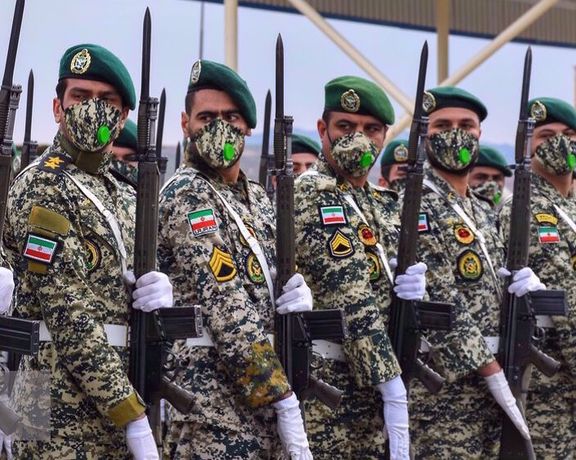
The military hierarchy of the Islamic Republic has once again threatened the United States and Israel saying it will “firmly” respond to any attack.

The military hierarchy of the Islamic Republic has once again threatened the United States and Israel saying it will “firmly” respond to any attack.
The General Staff of the Armed Forces issued a statement on Wednesday claiming the “enemies” hatched different military, economic, and political plots against the Islamic Republic over the past four decades.
Using the term “enemies” is a favorite of Supreme Leader Ali Khamenei to refer to the United States, Israel, US allies in the region and in Europe.
The statement further alleged that during the recent demonstrations in Iran “the main strategy was to wage a media and cognitive war to influence young Iranians.”
Following Khamenei’s lead, Iranian officials claim the ongoing antigovernment protests across Iran – ignited by death in custody of 22-year-old Mahsa Amini -- are instigated by foreign enemies.
“The Iranian Armed Forces will not allow the enemies to undermine the security of the people and the country and will continue to closely monitor the sinister moves of the enemies, especially the US and Israel,” reads the statement. The military leadership appointed by Khamenei also renewed their allegiance to him.
Iran’s aging authoritarian ruler Khamenei has always referred to past and current protests as “riots” incited by “enemies” and accused protesters of “sedition”.
The number of protesters killed by security forces since mid-September has now risen to over 500, with tens of thousands injured and arrested.
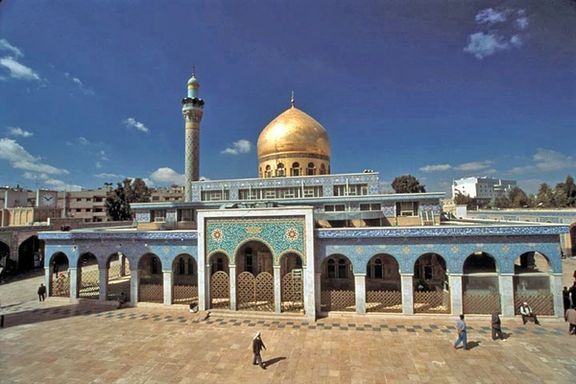
Israel says its ability to strike Iranian nuclear sites has improved and attacks could happen in a few years, while Iran is entrenching near the Syrian capital.
Iran is seeking to revive the expansion of its presence near Damascus, something it has always sought to do but was previously prevented by Russia, a report by Asharq Al-Awsat on Tuesday said, adding that Iran's objective is to create another “southern suburb”, commonly known as Dahieh, like the Hezbollah-dominated suburb of the Lebanese capital Beirut.
The article alleges that the Islamic Republic is scaling up its purchase of homes and establishing new camps in areas adjacent to the zones of influence of Russia, which is currently preoccupied with its war in Ukraine.
The plan is to ultimately expand the influence of Iranian forces in the towns of the southern Damascus countryside adjacent to the Sayyidah Zeinab, a town in the Rif Dimashq Governorate, less than 10 kilometers to Damascus.
The town, locally known as Sitt Zaynab, is the main stronghold of Iranian militias and their proxies in the southern countryside of the capital.
Since late in November, Syria and Iran have been deploying new air defense systems, including jamming and early warning systems, around Damascus to prevent Israeli airstrikes in the area. There are reports that the new systems were built by Korean and Chinese companies and provided by Iran as part of agreements reached between Damascus and Tehran.
On Wednesday, Israel's defense minister said it could attack Iranian nuclear sites in two or three years, in unusually explicit comments about a possible timeline.
With international efforts to renew the 2015 nuclear deal (JCPOA) having stalled, the Iranians have ramped up uranium enrichment, a process that can eventually yield fuel for nuclear bombs -- though they deny having any such design. For more than a decade, Israel has issued veiled threats to attack its arch-enemy's nuclear facilities if it deems world powers' diplomacy with Tehran a dead end. However, some experts doubt Israel has the military clout to deliver lasting damage to Iranian targets that are distant, dispersed and well-defended.

On Tuesday, the chief of staff of the Israeli Defense Forces Lieutenant General Aviv Kochavi said Israel’s level of preparedness for an operation in Iran has dramatically improved.
In a speech at the Israeli Institute for National Security Studies, Kochavi said that the Islamic Republic is seeking to deploy hundreds of missiles in Syria along with deploying "thousands of Shia militiamen." The army chief said Israel managed to disrupt the Iranian vision in Syria "to establish a second Hezbollah in Syria."
Iran claims it is defending the Sayyidah Zeinab shrine, which is visited regularly by thousands of Shiite pilgrims from Iran, Iraq, Lebanon, Afghanistan, and Pakistan. Before the war broke out in Syria about 12 years ago, most of the population of the southeastern countryside of Damascus, including the towns of Babila, Yalda and Beit Sahem were Sunni Muslims.
However, after Damascus regained control of the area in the summer of 2018 and local families started returning to the towns, they were approached by strangers looking to buy their homes and real estate. According to reports, it became clear that those buying the houses were the families of fighters from militias affiliated with the Islamic Republic, originally from the Shiite towns of al-Foua and Kefraya in the Idlib countryside.
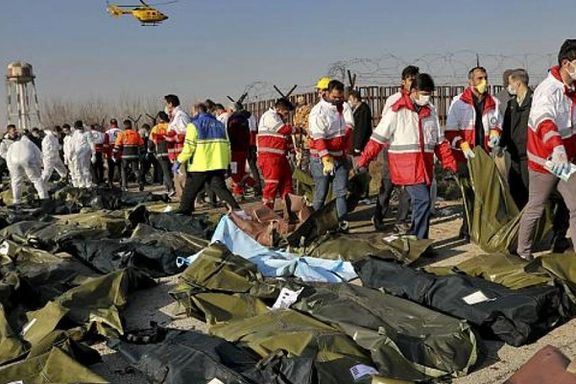
Britain, Canada, Sweden, and Ukraine have formally launched a process to hold the Islamic Republic accountable for shooting down a Ukrainian airliner over Tehran.
Nearly three years after Iran’s Revolutionary Guard shot down Flight PS752 shortly after takeoff from Tehran with two surface-to-air missiles, the four countries have urged Iran to agree to arbitration as Tehran has stonewalled over an independent investigation and proper compensation.
All 176 people onboard died in the January 8, 2020 incident, with dozens of Canadians among them.
The International Coordination and Response Group representing the affected countries issued a joint statement Wednesday to hold Iran accountable.
“We have requested that Iran submits to binding arbitration of the dispute related to the downing of Flight PS752…pursuant to Article 14 of the Convention for the Suppression of Unlawful Acts against the Safety of Civil Aviation of 1971.”
The convention requires all signatories to prohibit, prevent and punish certain the unlawful and intentional destruction of an aircraft in service.
The four countries as well as Iran are parties to the convention which was signed in Montreal in 1971.
If they cannot come to an agreement upon arbitration within six months, the case can be taken to the International Court of Justice.
In May 2021, some family members also filed a civil lawsuit against the government and senior officials they believe were to blame for the incident. Canada’s Ontario Court ruled that the downing of the plane was an intentional act of terrorism.
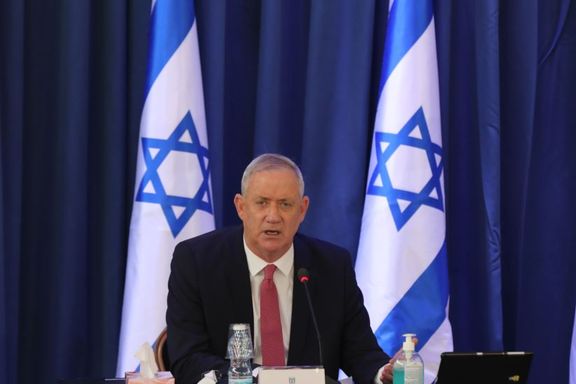
Israel could attack Iranian nuclear sites in two or three years, its defense minister said Wednesday, in unusually explicit comments about a possible timeline.
With international efforts to renew the 2015 nuclear deal (JCPOA) having stalled, the Iranians have ramped up uranium enrichment, a process that can eventually yield fuel for nuclear bombs - though they deny having any such design.
Experts say Iran could potentially raise the fissile purity of its uranium to weapons-grade in short order. But building a deliverable warhead would take it years, they say - an estimate echoed by an Israeli military intelligence general this month.
"In two or three years, you may be traversing the skies eastward and taking part in an attack on nuclear sites in Iran," Defense Minister Benny Gantz told graduating air force cadets in a speech.
For more than a decade, Israel has issued veiled threats to attack its arch-enemy's nuclear facilities if it deems world powers' diplomacy with Tehran a dead end. However, some experts doubt Israel has the military clout to deliver lasting damage to Iranian targets that are distant, dispersed and well-defended.
The Israeli military intelligence forecast for 2023 is that Iran "will continue on its current path of slow progress" in the nuclear realm, according to Israel Hayom newspaper on Sunday.
"Iran will only change its policies if extreme sanctions are imposed on it; then it could decide to accelerate enrichment to military grade," said the report, which a military spokesperson confirmed as citing genuine intelligence assessments.
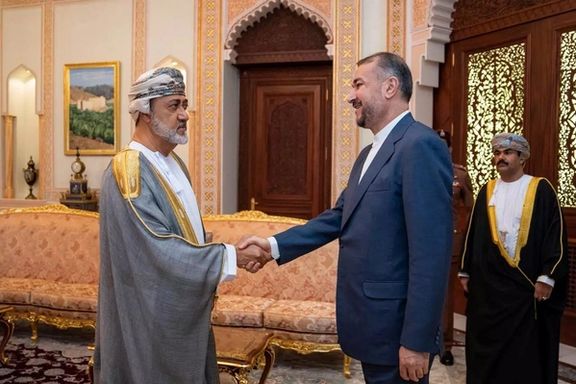
The Iranian foreign minister’s Oman visit reflects continuing regional diplomacy over the Iran nuclear agreement, trade, Yemen, and Arab relations with Israel.
Hossein Amir-Abdollahian met Wednesday in Muscat with the Omani Sultan Haitham bin Tariq, calling Oman the “epicenter” of regional talks. With Yemen, Afghanistan, and Ukraine all on the agenda, the minister said these issues had to be addressed “at a faster pace.”
There is speculation, encouraged by phone calls between Amir-Abdollahian and his Omani counterpart December 22, that Muscat has a role in restoring the 2015 Iran nuclear agreement, the JCPOA (Joint Comprehensive Plan of Action). Muscat’s mediation goes back to facilitating secret Iran-United States contacts before the 2015 deal. European Union spokesman Peter Stano December 26 explained Amir-Abdollahian’s meeting in Jordan December 20 with EU foreign policy chief Joseph Borrell’s as “moving talks about JCPOA revival forward.”
Omani mediators have also been in Sanaa trying to bridge gaps between the government of Rashid al-Alimi and the main opposition Ansar Allah, known as the Houthis, over extending the fragile eight-month ceasefire. Iran has given some support to Ansar Allah, while Saudi Arabia began in 2015 direct military involvement, mainly with its air force.
Reports said the Omanis left December 25 without resolving differences as to whether the government or Ansar Allah should pay fighters and state employees in the third of Yemen, including 80 percent of the population, under Ansar Allah’s control. At least 370,000 people have died in the eight-year conflict, which began with protests against then president Ali Abdullah Saleh. The United Nations says a child is dying every ten minutes from preventable causes.
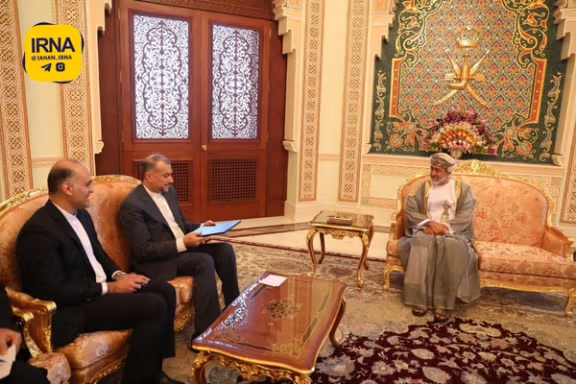
Keen to see the JCPOA restored, Oman has distanced itself from any push towards ‘normalization’ with Israel through extending the 2020 US-brokered ‘Abrahamic accords,’ which were widely portrayed in the US as a move against Iran. After the critical reaction of Arab football fans to Israeli journalists in December’s World Cup, and with a new Israeli government including far-right parties committed to speeding up Jewish settlements in occupied land, Muscat is mulling legislation similar to laws passed in Iraq and Kuwait sanctioning trade with Israel.
“Anything related to Israel-Saudi relations outside of security matters…has largely left the Saudi media,” the Jerusalem Post noted Wednesday. “Oman never had any serious intention of joining [the Abrahamic accords].”
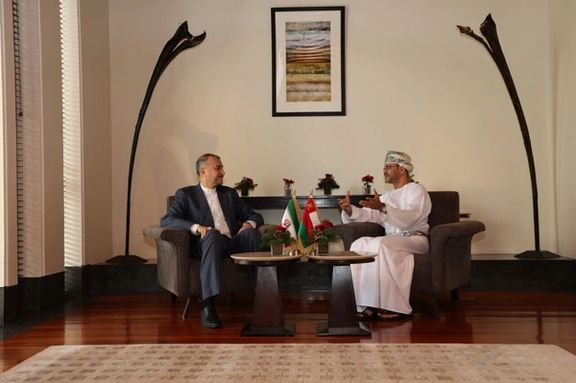
Expanding trade, ‘friends with all’
Iranian regional diplomacy is pushing both the need for dialogue and expanding trade. Both were discussed at the ‘Baghdad 2’ conference December 20-21, where an Iranian delegation led by Amir-Abdollahian met with leading officials and politicians from Turkey, Saudi Arabia, Qatar, the United Arab Emirates, Kuwait, Bahrain, Oman, Egypt, France, Iraq, Jordan, and the EU.
Critical reaction in Tehran was fairly muted to a joint statement issued after the December 9 Arab-China summit where Riyadh and Beijing agreed “joint cooperation to ensure the peaceful nature of Iran’s nuclear program.” Business Insider noted December 20 that many could see that “Beijing would rather balance its relationship with regional competitors,” pursuing “a friends-with-all approach” that both expands $87-billion bilateral trade with the Saudis and also pursues, despite US sanctions, the 2021 25-year cooperation agreement with Iran envisaging potentially $400-billion Chinese investment in exchange for stable, discounted oil supplies.
Oman faces greater difficulties in two gas projects with Iran, one to supply 10 billion cubic meters/year of Iranian gas over 15 years, and one as a conduit for a 1400km, $7-billion pipeline from Iran to India for 11.3bm3/year, for which New Delhi signed a memorandum-of-understanding with Russia’s Gazprom in 2019.
However, neither Iran nor Oman has the technology to lay deep-sea pipelines and the long-delayed project needs Western technology, which in turn needs the lifting of US sanctions.
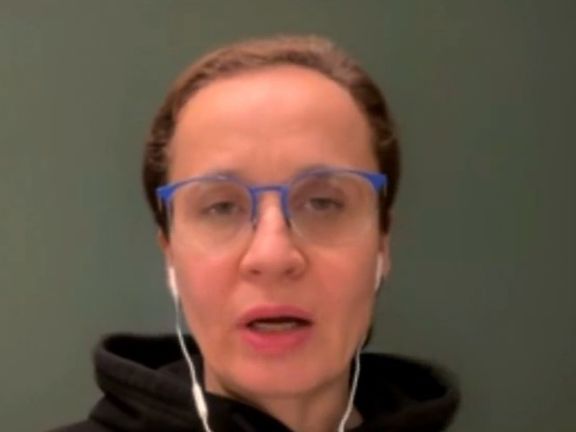
A Ukrainian parliamentarian says Iranian-made drones’ destruction of her country’s power plants and other infrastructures by Russia to deprive the people from electricity is an act of terrorism.
“Every week we see Iranian drones over our heads destroying our buildings and civil infrastructure like electricity stations, leaving millions of people without power. It's terrorism and genocide of civilians," Yulia Klymenko, a senior Ukrainian MP told Iran International Tuesday.
The United Nations is investigating the origins of the downed drones in Ukraine. Earlier this month, Reuters quoted Secretary General Antonio Guterres as saying that any findings would be reported to the Security Council “as appropriate, in due course.”
Kyiv has accused Tehran of supplying 1700 Shahed-136 loitering munitions to Moscow, which it says have been used to hit targets in Ukraine since September. Iran denies the allegations.
Klymenko said the loss of electricity and heating caused by the drone attacks is affecting millions including women and children. President Volodymyr Zelensky said Tuesday that nearly nine million Ukrainians are left without electricity as of December 26.
Expressing disappointment over Tehran's support for Moscow inthe war against Ukraine, Klymenko stressed that PresidentVolodymyr Zelensky has clearly condemned Iran's involvement in the Ukraine war.
A top Ukrainian official, presidential aide Mykhailo Podolyak, on Saturday called for the “liquidation” of Iranian factories making drones and missiles, as well as the arrest of their suppliers. Such remarks have “political and legal consequences,” the Iranian foreign ministry spokesman, Nasser Kanani, said Monday in response without further elaboration.